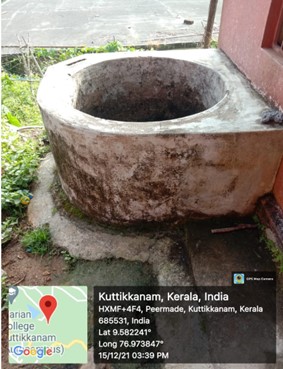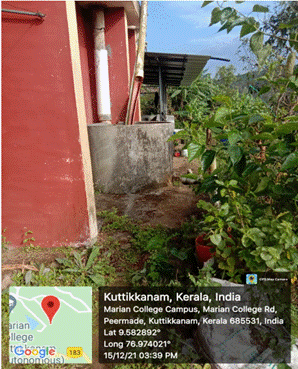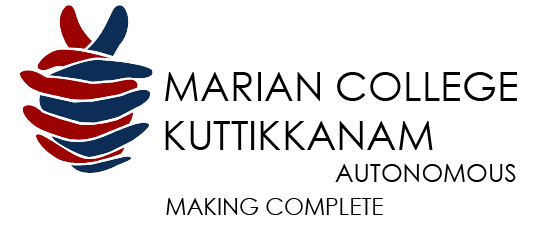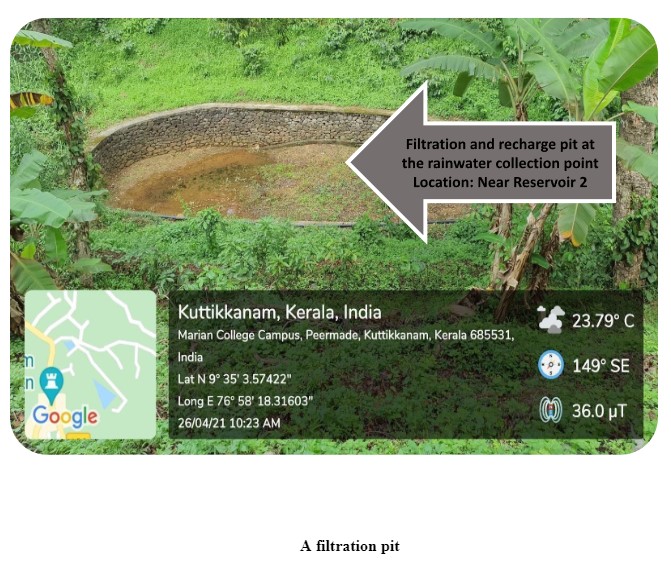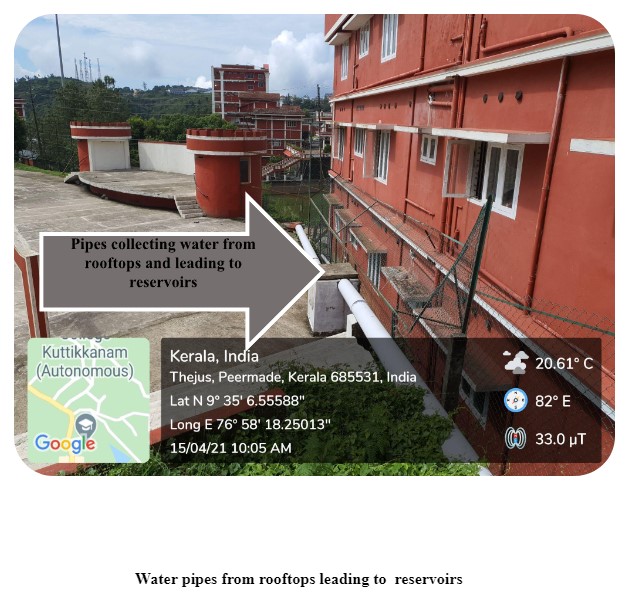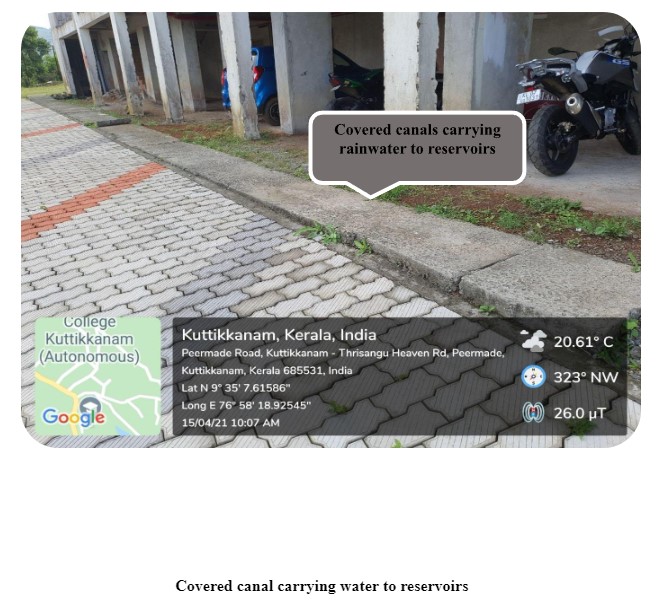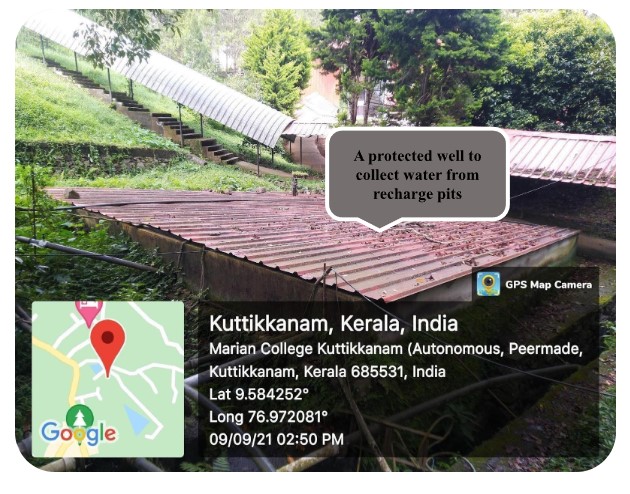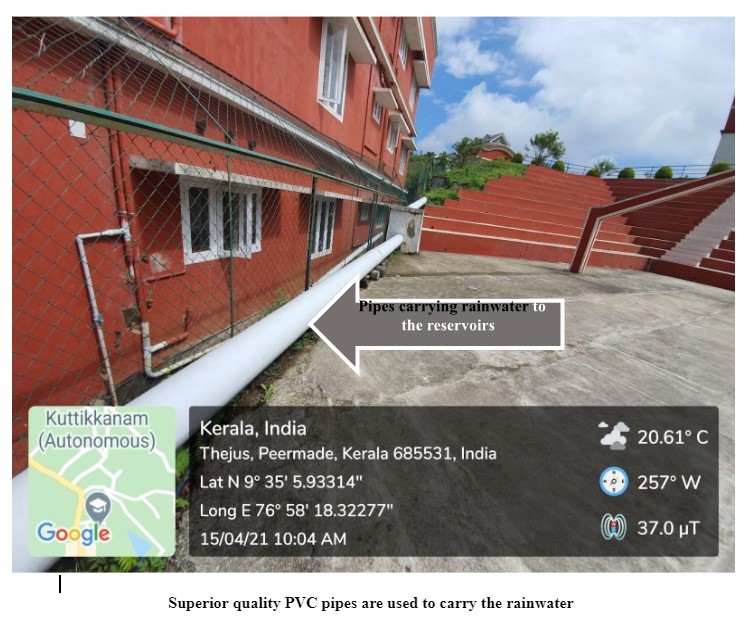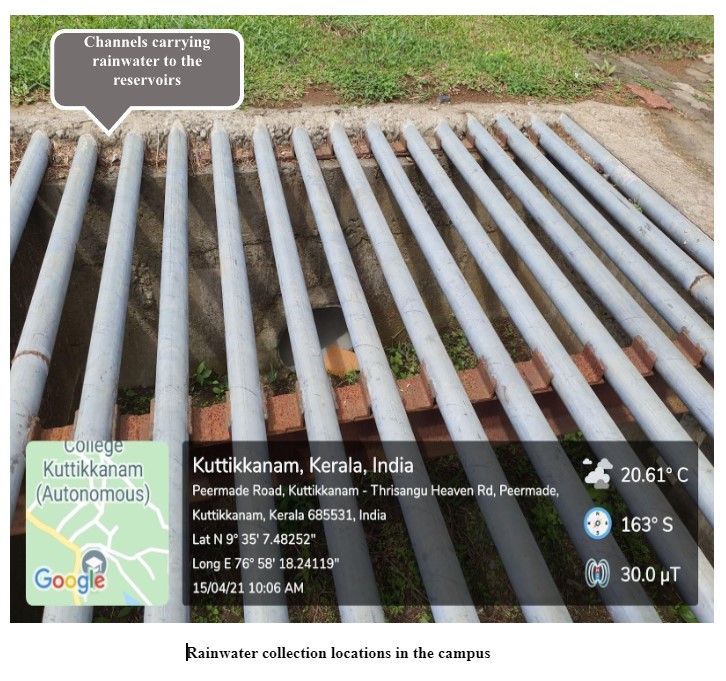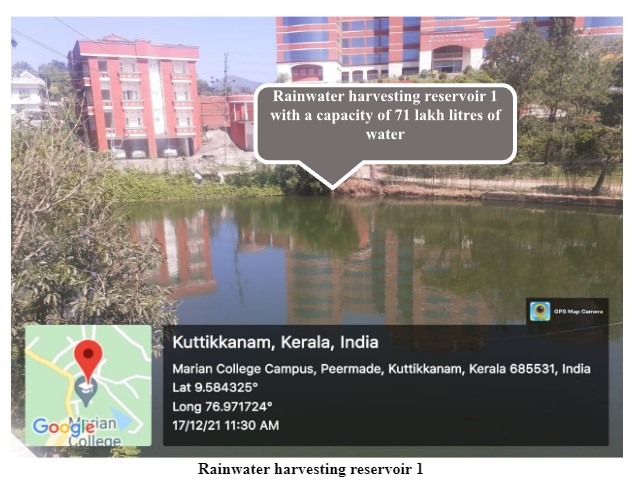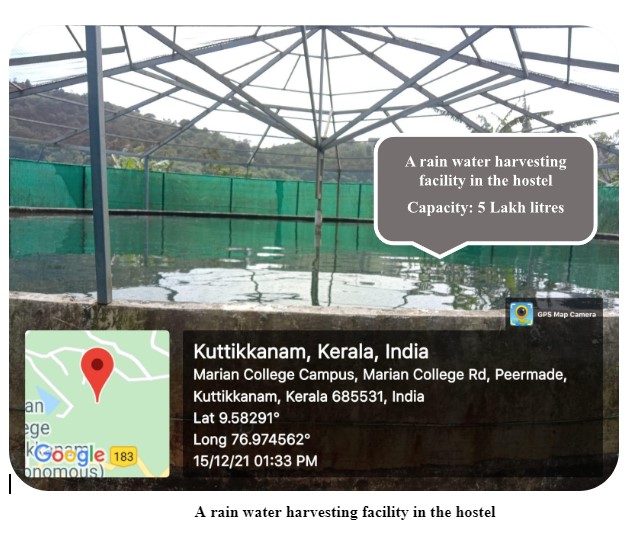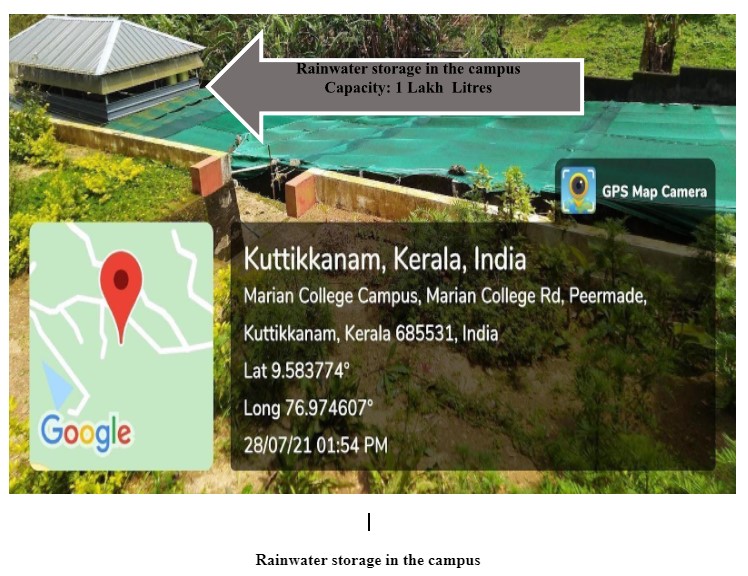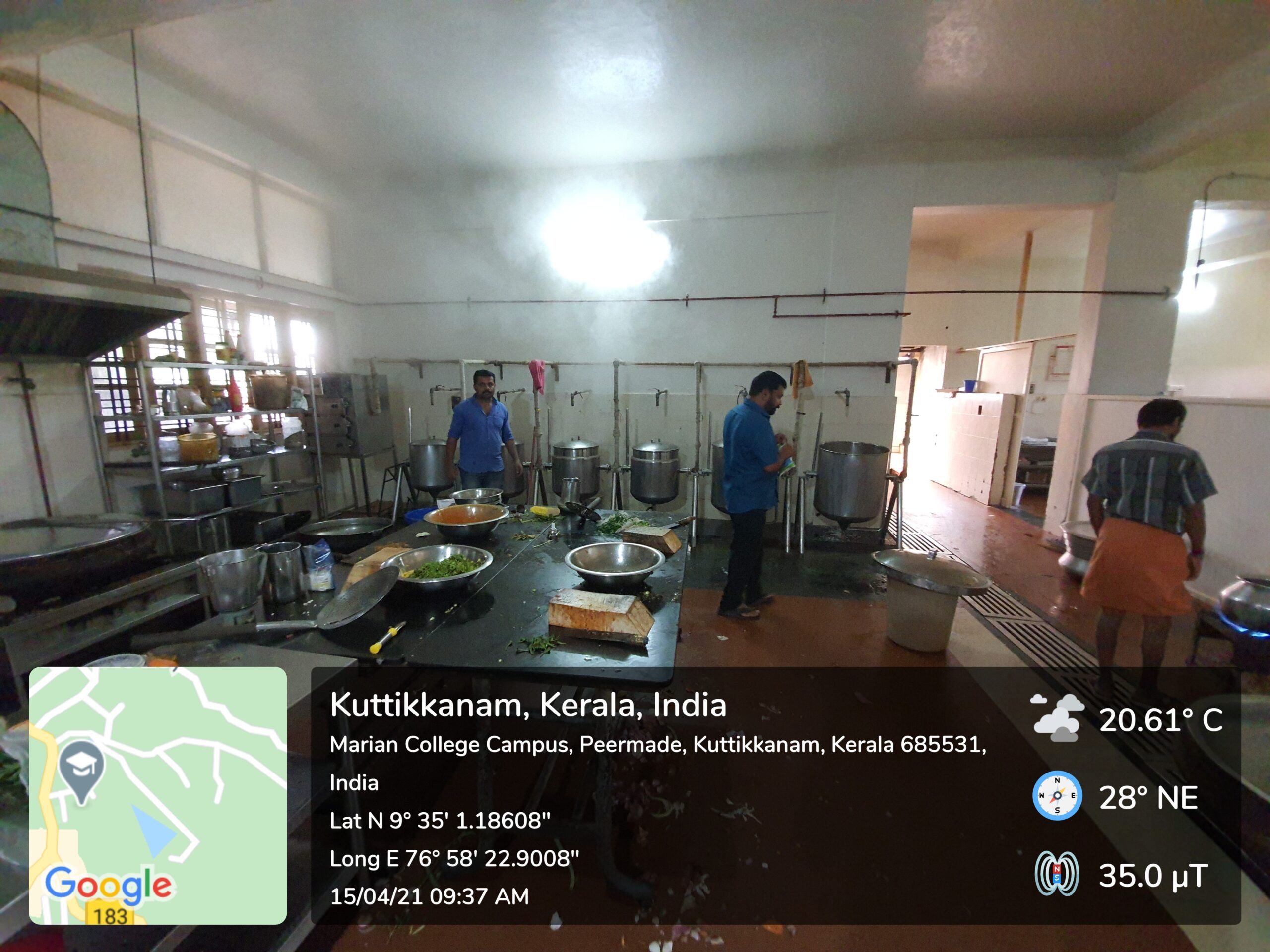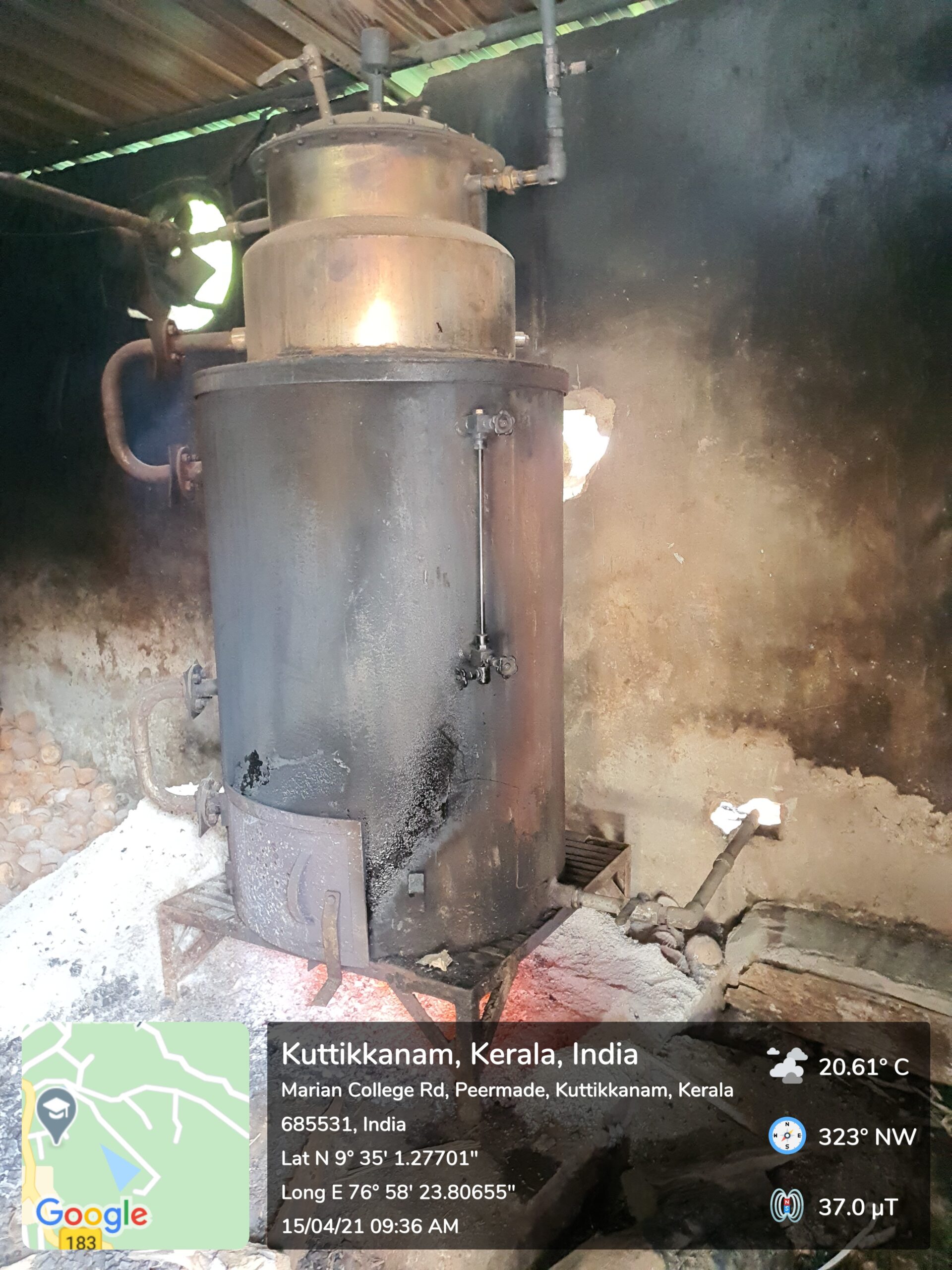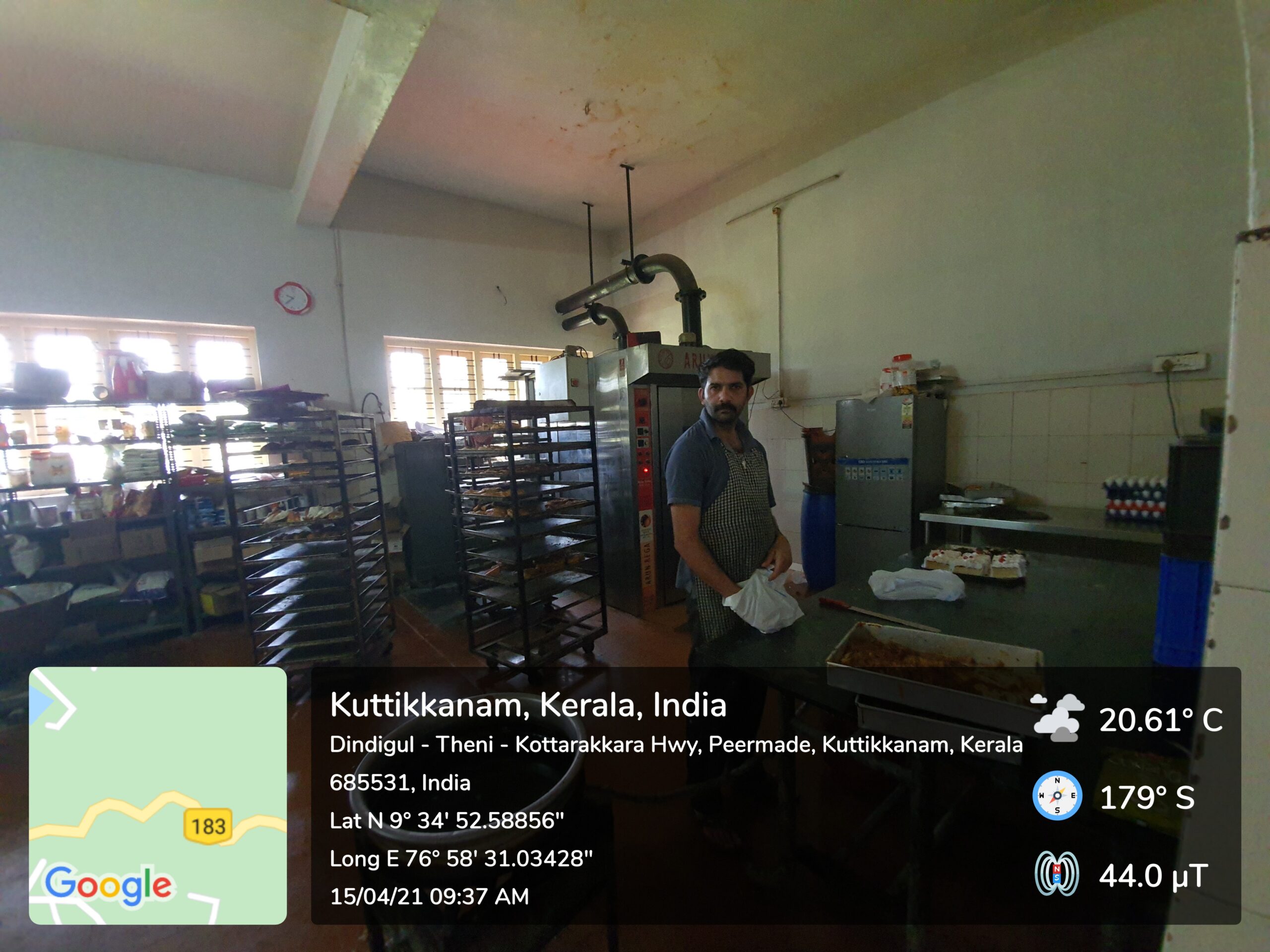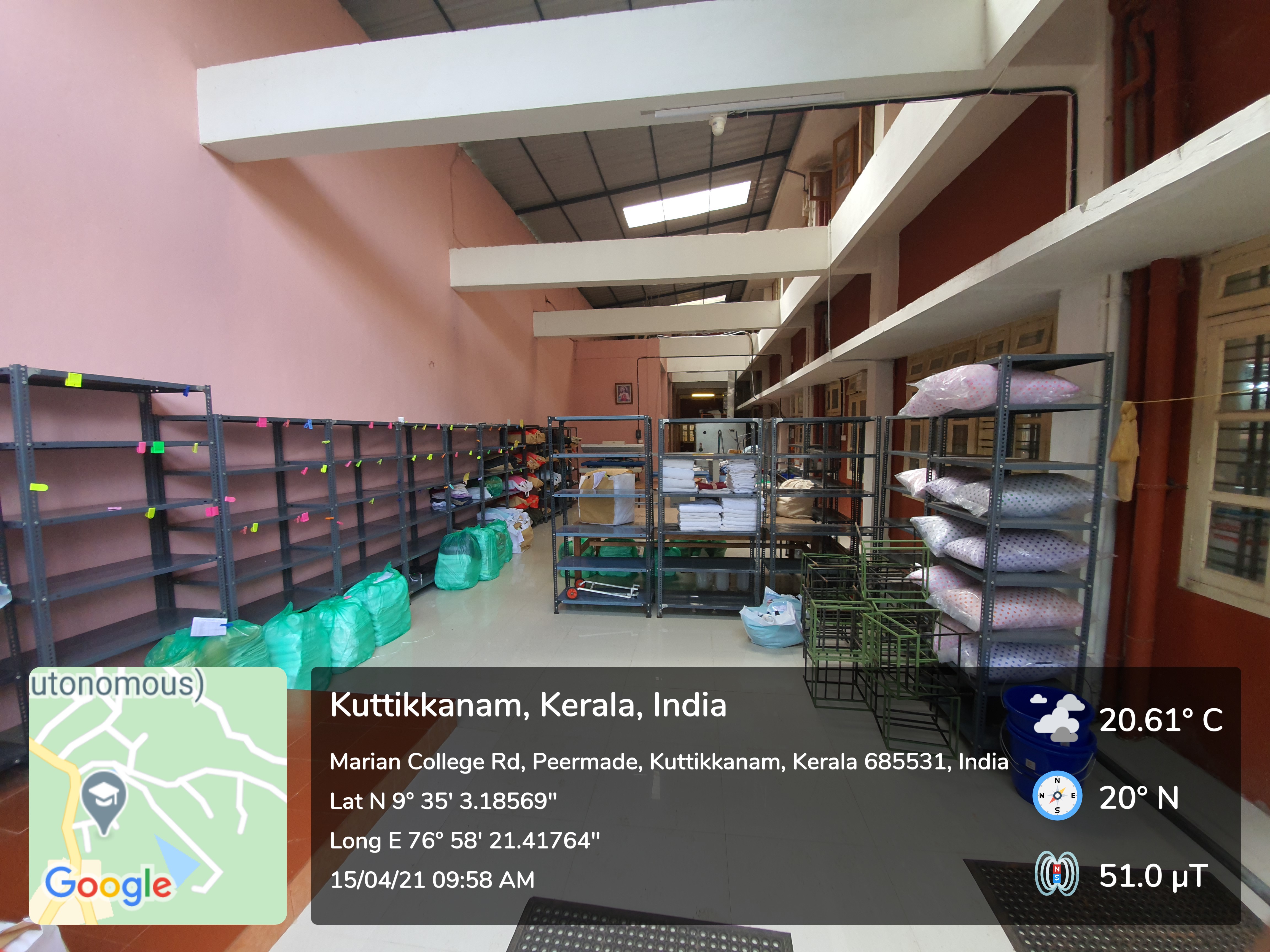- House construction support programme, launched by the College is a major success and a great help to the neighbouring community. The Extension department has been involved in the construction of 45 houses for the needy during the last five years.
- Marian Buds, a College-sponsored initiative, provides protection and security for children of the neighbouring labour community who felt unsafe at home while their parents are at the work.
- Smart Community – The sessions conducted by the Department on entrepreneurship, tailoring, soap-making, shampoo making, and other topics inspired and stimulated the local parents’ community.
- The College NSS Unit bagged many state awards on account of the extension activities conducted in the society.
- Cleaning the KSRTC Stations increased student awareness regarding the significance of public transportation and networking.
- Local tribals in Idukki District were provided construction and trash management instruction, as well as counselling.
- Lincy Sebastian, A teacher from Murikkattukudy’s Tribal School, who was associating with Marian College to coordinate extension activities at Murikkattukudy’s Tribal settlements received a state award for her services.
- Seminars organized in collaboration with our NSS & Women Cell on Narcotic Awareness, Road Safety, Fire & Safety, Protection and Care of Women and Children, First Aid, Child Rights, and POCSO helped to establish self-sufficiency among the students.
- An attendance tracking system developed by MCA students was implemented in the local Government schools to identify students who are absent from classes.
- Marian became successful in attracting students from underprivileged and ethnic backgrounds and in developing their careers through its outreach activities.
- Marian acted as a coordination centre during the natural calamities that affected the district in 2018 and 2020.
Embankments are constructed in the campus in order to harvest and store the rainwater. Two large water reservoirs in the campus store up to 2 crores and 71 lakhs litres of water, respectively sufficient to meet the entire water requirements on campus. About 50 lakh litres of surface water is saved by this measure which is channelled to the reservoirs through canals and pipes. These lakes considerably increased the water retaining capacity of the region which provided a lasting solution to the drought in the surrounding area. These reservoirs also add to the scenic beauty of Marian campus.
Solar energy panels were set up in the Marian Campus during 2018-19. The total power requirement of the College per day is computed as 199 KW, of which the Solar Photovoltaic (SPV) System provides nearly 80 KW energy. This amounts to approximately 40% of the total energy requirement. The campus is utilizing the potential of solar power as a renewable energy option. The Grid Tie Solar Photovoltaic (SPV) System of 150 KW on roof tops of the institute have been effectively executed under different phases. During the year 2019, the solar energy system of the campus was connected to the distribution system of Kerala State Electricity Board and obtained substantial reduction in electricity consumption.
These solar systems were set up on the recommendations of the Energy Audit in 2018. The electricity produced inside the campus was connected to the distribution system of KSEB during 2019. This installation provides a reasonable quantum 4 KW energy per day. Based on the recommendation of the Audit, the College had set up the first phase of Rooftop Solar System (30 KW) , connecting the outputs to the distribution system of KSEB. The total power requirement of the College per day is computed as 199 KW of which the SPV system provides nearly 80 KW energy which amounts to approximately 40% of the total energy requirement. This energy is predominantly utilized for the working of water filters and purification, heaters and lighting requirements, especially LED bulbs. The commissioning of the extended solar power system is anticipated to contribute towards increased energy needs of the campus. Substantial reduction in energy consumption and associated monetary benefits. Positive environmental results such as reduced carbon footprint are expected in the long term installation of SPV.
The KSEB Electricity bill for the month of January 2019 was Rs. 2, 26,564 and it was
reduced to Rs. 79,692 after the installation of solar power project in the campus.







Solid Waste Management
Marian follows the 5-R principles (Refuse, Reduce, Reuse Repurpose and Recycle) in Solid Waste Management in the campus and is committed to adopt best practices in reducing and managing solid waste effectively and systematically. An efficient sorting and treatment mechanism is in place on campus with strict adherence to Green Protocol. Waste is segregated at source by providing separate colour-coded bins in different strategic and visible locations within the reach of students for degradable and non-degradable waste.
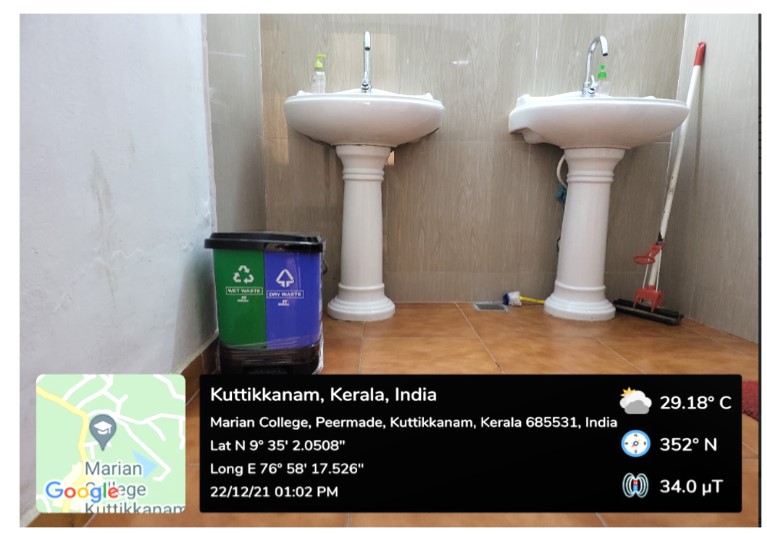
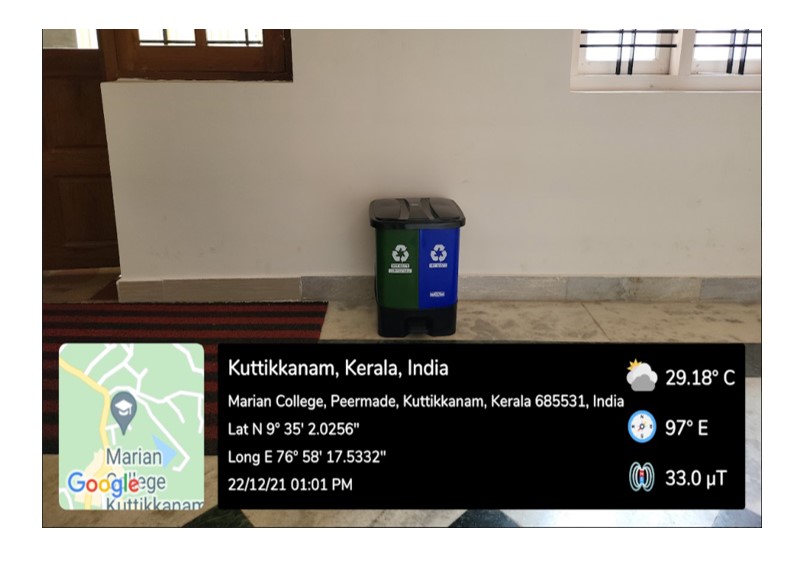
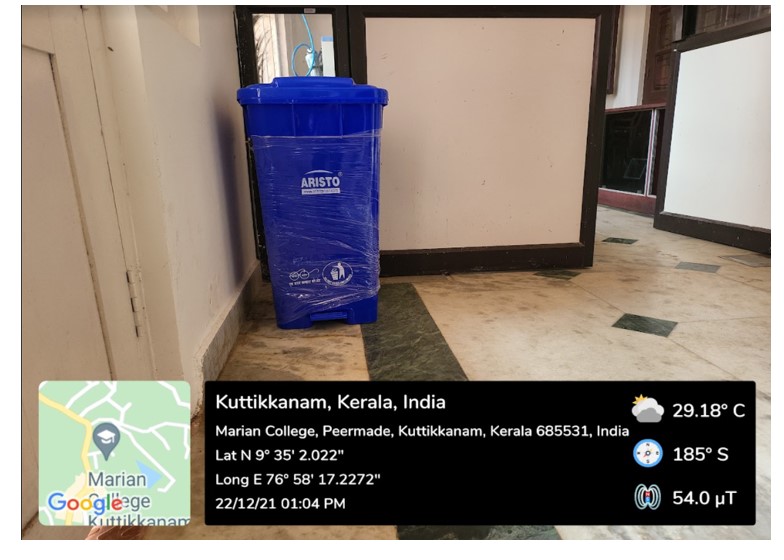



Food Waste
Food waste from hostels are given to nearby farmers to feed their piglets and the kitchen waste is fed to biogas chambers for gas production. The resulting organic manure from the biogas plant is used for gardening, vegetable cultivation and in horticulture.

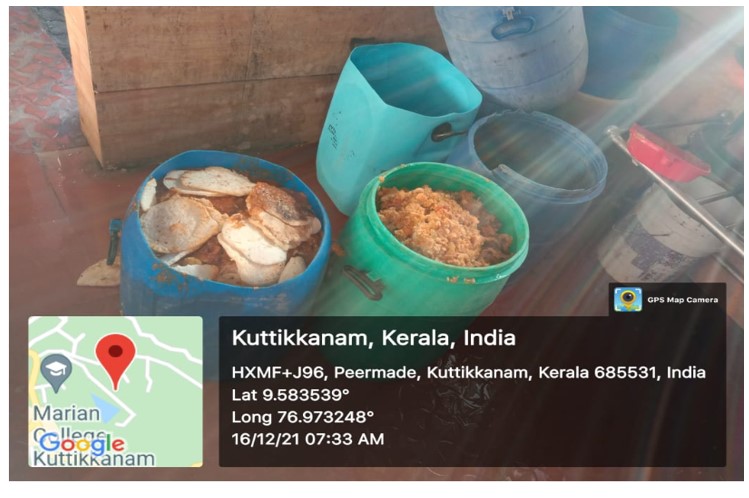
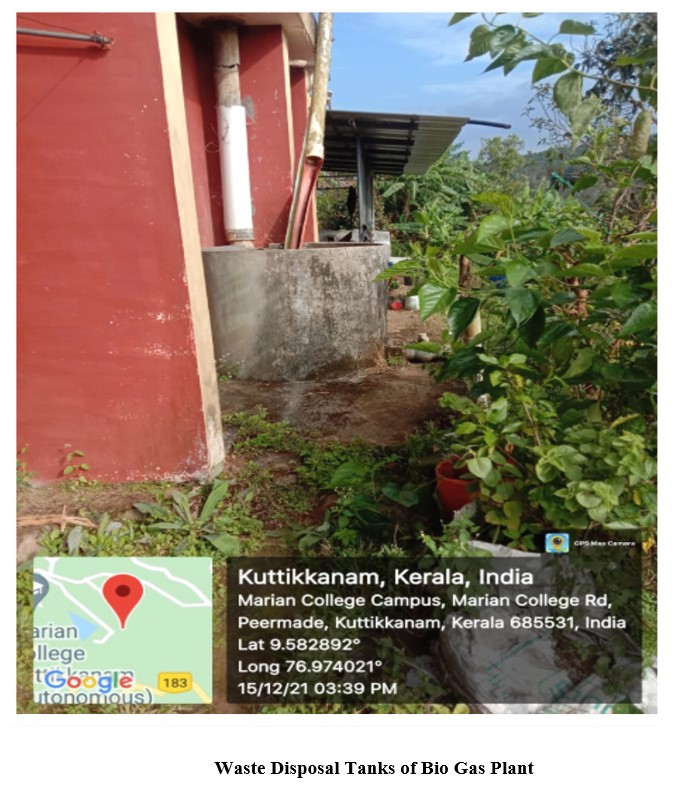
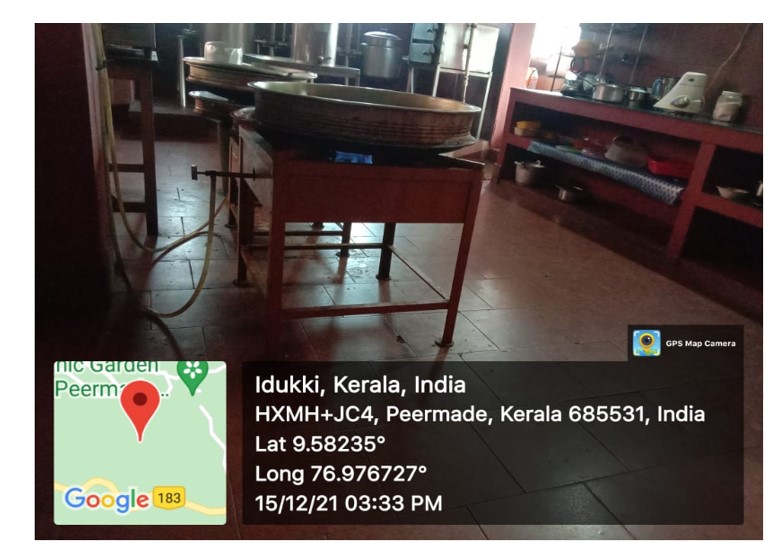
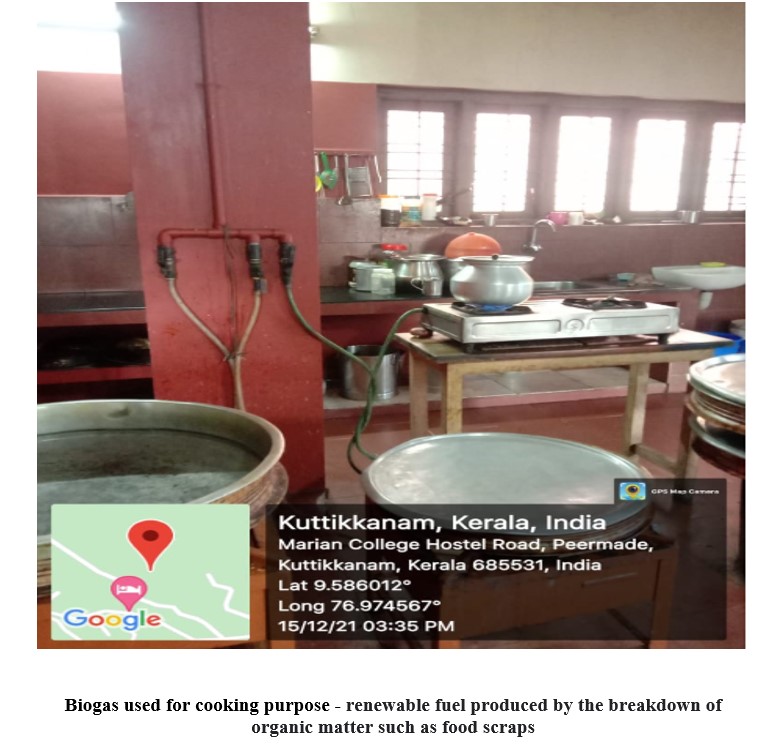
Paper Waste
Paper waste is sold out to venders or incinerated. Efforts are on to reduce the use of paper to a minimum level, through digitalizing the communication systems. Waste papers are also used for making paper pens.

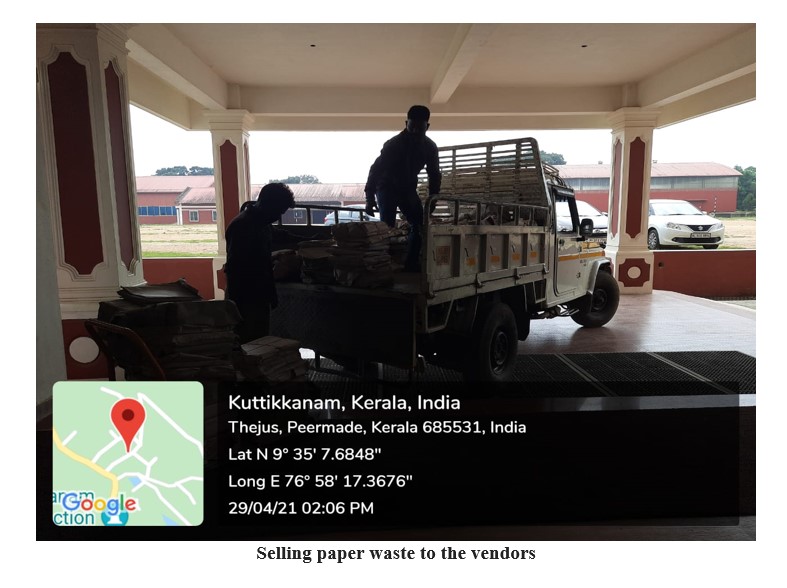
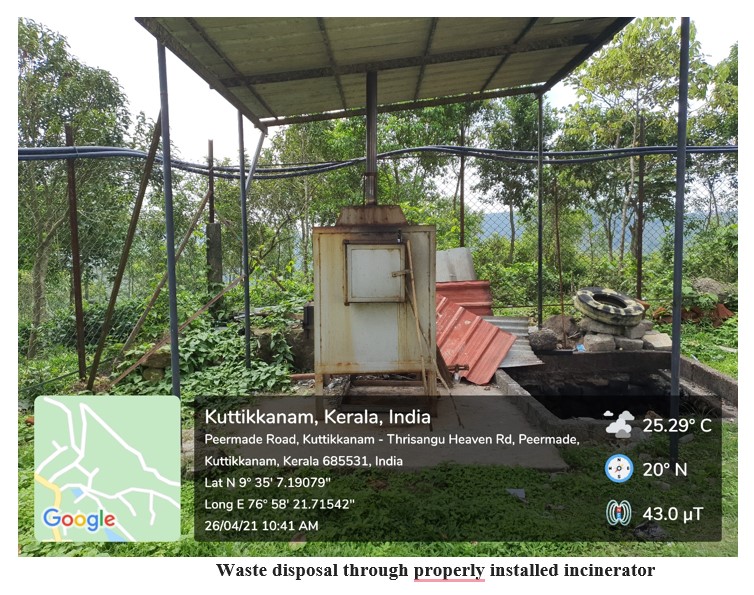
Plastic Waste
The plastic wastes were sold out through vendors periodically.
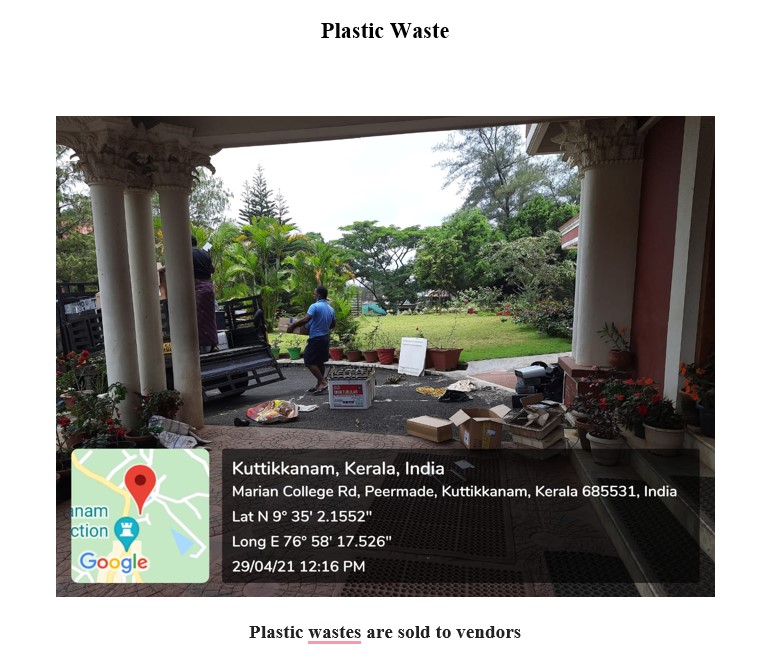
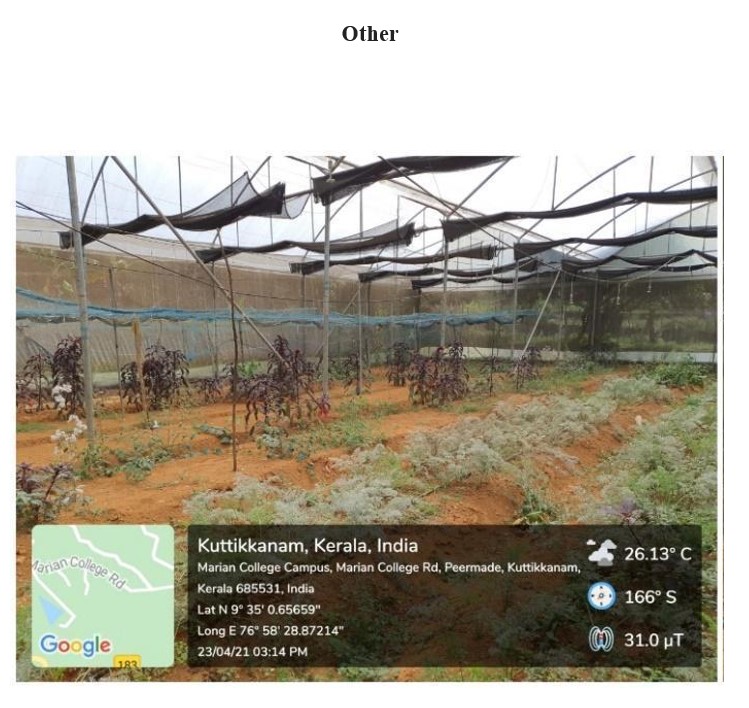
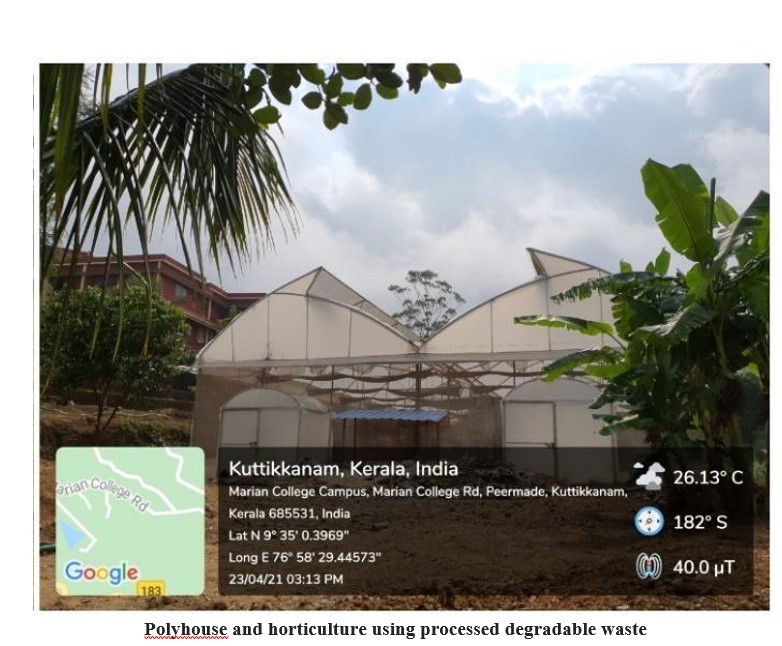
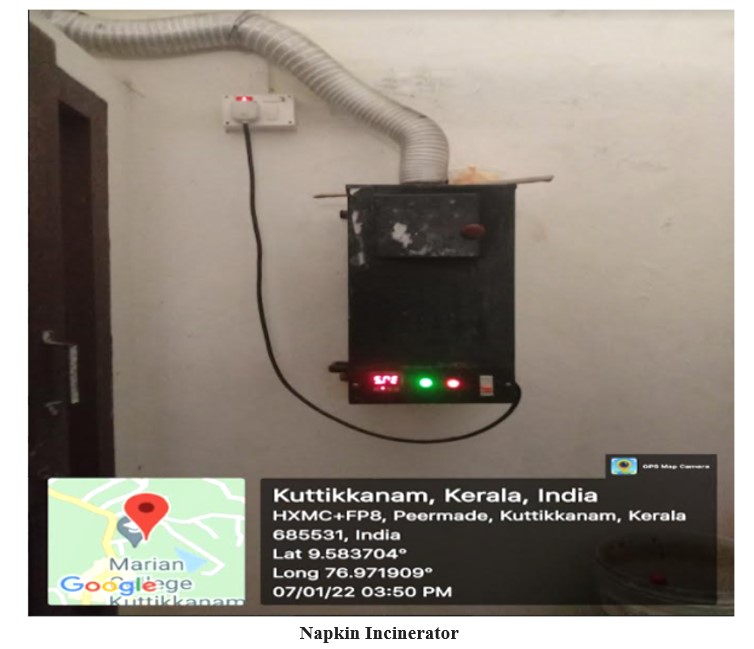
Waste Water Recycling
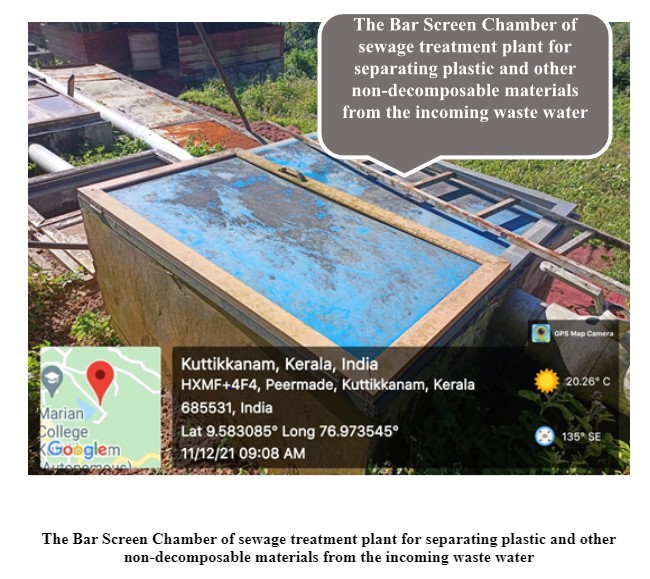
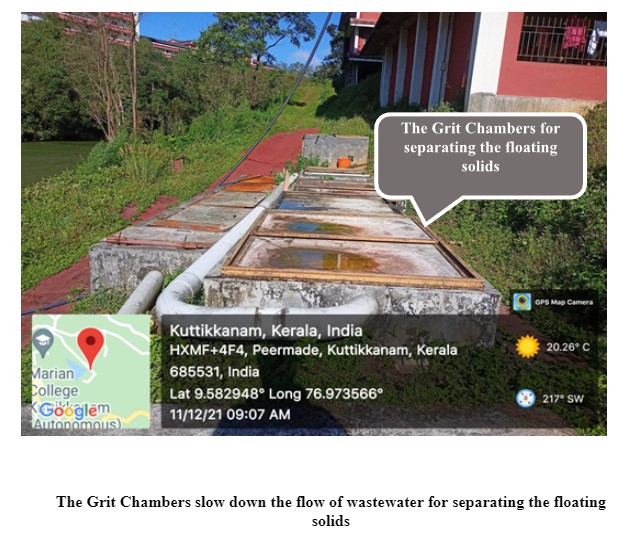
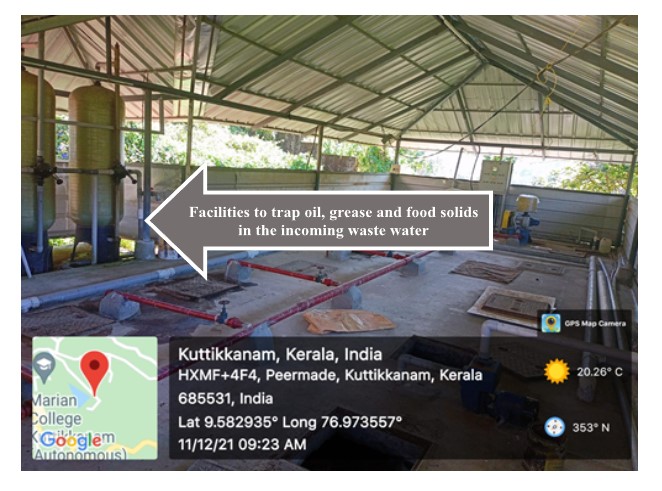
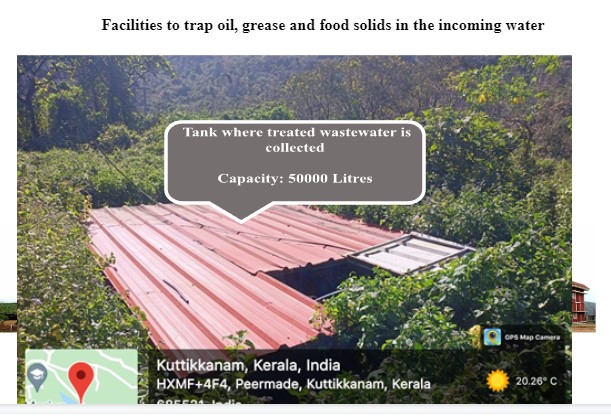
Marian conducts Green and Energy Audits at regular intervals to assess and depict the extent to which the College impacts the nature and the social outreach of these activities towards embracing eco-sustainability. The domains under consideration revealed appreciable and satisfactory performance and found to give emphasis to unique green initiatives. The College has adopted significant steps to reduce the energy consumption and also to increase the energy efficiency. The current energy utilization has been reduced significantly owing to the dependence on renewable energy generation (Solar) within the campus.
The College is currently following outstanding water harvesting and conservation methods. The green initiatives of the campus ensures water conservation practices as well as optimal and conscious water usage. As a signature of compassion, ‘Vellathotti’ an initiative of the campus stands to quench the thirst of birds and animals.
The campus has a highly appealing biodiversity. The diverse flora and the associated fauna including the teeming aquatic forms and above all, the campus attitude of ‘live with nature’ helps to safe guard the tranquillity and greenness of the campus as an eco-system. The campus has a competent and advanced mechanism for managing both solid and liquid wastes. The strong adherence to the institutional green protocol for waste management is highly appreciable. The initiatives to generate food waste derived biogas energy as a fuel substitute in hostel is a way forward to energy sufficiency and appropriate waste management.
From a climate change conscious and mitigation perspective, the College stands with a difference. The substantial reduction in the carbon footprint achieved by Marian as gauged through the audit revels the magnitude of meticulous green efforts for an eco-friendly campus.
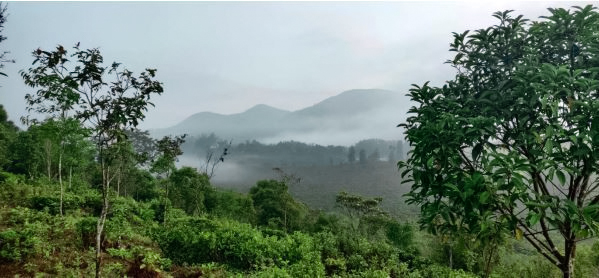
Excess solar energy generated by rooftop solar modules are given to the KSEB grid. The system includes safety and power quality components such as switches to disconnect the system from the grid in the event of a power failure. The power conditioning equipment ensures that the power exactly matches the voltage and frequency of the electricity flowing through the grid. The 80 KWP solar panels installed on Marian initiative reduced the consumption of energy on campus considerably. This endeavour was greatelly appreciated by the KSEB as a promotion of sustainable energy.
Hostel Water Heater Timing
Led Bulbs and Repairing
As part of improving energy efficiency, Marian has shifted to the use of LED bulbs. The assembling training programme of LED Bulbs was conducted for the students with the support of Energy Management Centre (EMC), Government of Kerala. These LED bulbs save up to 90% power compared to conventional incandescent light bulbs. MoU has been signed with Kalloor Electronics and Lightening Pvt Ltd (KELL), Mundakayam for the installation of LED bulbs in the campus and hostels. The College promotes the use of LED bulbs through awareness programmes, and gives training to the students on the assembly of LED bulbs. Power efficient modular UPS equipment were installed in the campus based on the recommendations of the Energy Audit conducted in 2016. The energy saving interventions through the introduction of modular UPS systems and energy efficient computers helped to bring down the electricity consumption significantly. The LPG derived energy is also used in laundry dryers
Biogas
A biogas unit was installed on the campus for generating reserve fuel for cooking in the hostels by utilizing the biodegradable waste produced on campus. The biogas produced from food waste, decomposable organic material, and kitchen waste are utilized as an alternative fuel for cooking gas (LPG). This helps in effective waste management, to create carbon-neutral energy, and brings about a substantial reduction in the usage of LPG in the hostels. The residue waste is used for vermicomposting which produces environment-friendly and high-quality fertilizer, an effective alternative to chemical manure.
